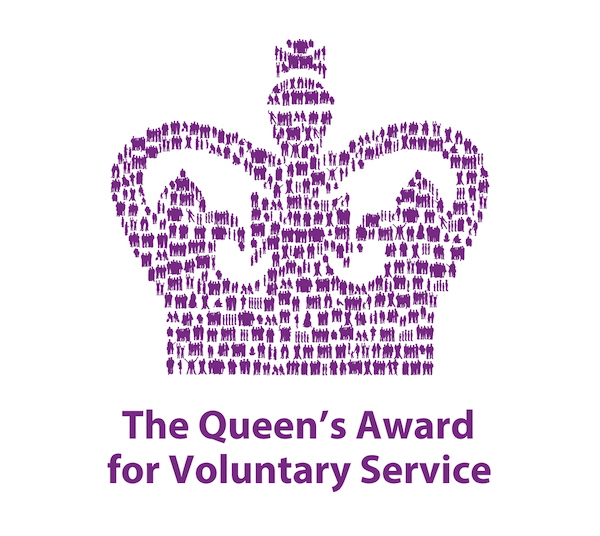Choppy Waters
Covid-19, changes in support needs and growing funding stresses
Since 2014, Cohort 4 has operated across a small geographical region containing pockets of significant deprivation (Indices of Deprivation, 2019). We are within a mainly working class, predominantly white area in North of Warwickshire, a semi-rural, ex mining area where the closure of the pits decimated communities in the 1980s onwards. Public transport has been reduced from the outlying mining villages. Police stations, probation offices, social services and other statutory services have closed their buildings in semi-rural or small market town communities, moving to more centralised, large town locations. All of this serves to disadvantage semi-rural communities. Larger charities and support services also locate themselves in large towns and city locations, making access for our women practically impossible without private transport and/or support.
Our group members are arguably some of the most vulnerable in our community. Most of our women survive abuses (domestic/sexual violence), all have mental ill health conditions, many have physical as well as mental health disabilities. Some of our women have previous convictions, some have ongoing addiction issues. All have multiple needs that require very specific, long term support to ensure inclusion and a sense of safety and belonging.
Hard to reach services
As mentioned above, being on the edge of the county, there is a paucity of services for our group members. Women with multiple and complex needs are often referred to as ‘hard to reach’ communities. We are not hard to reach, we have seen repeatedly that it is services who are hard to reach. As austerity has hit many Local Authorities and formally commissioned services since 2008, it has seemingly become even harder to access service provision other than to be given a leaflet or undergo yet another brief assessment. We experience this constantly. Many support services where they do exist are short term and very basic, such as 6 support sessions for mental ill health with no long term support plan. Examples: One of our women was told by her GP that the waiting list for counselling is so long, that she could not even be placed on the waiting list. We have had two women on a waiting list for approaching two years in August, for a DV recovery group work programme in North Warwickshire. After 5 serious self-harm incidents during Covid-19, one of our women has been advised to try bingo or to go for a walk. She has repeatedly been denied the crisis or inpatient support she has asked for and has been going in and out of A&E to address her physical wounds. She only has Cohort 4 working with her to push for more appropriate specialist care.
This roll back of support services is one of the key reasons for Cohort 4 setting up in North Warwickshire in 2014, but we’ve seen the situation get progressively worse over the years. Studies continue to show that populations in semi-rural, rural or seaside areas are now disadvantaged greatly where the bulk of funding, services and resources are located in highly populated areas. This is the case for school pupils through life into adulthood. Per head, inner city areas receive substantially more pupil funding than in the Shires or seaside locations. Disadvantaged pupils, had the highest attainment and progress in schools located in city conurbation, while disadvantaged pupils had the lowest attainment and progress in schools in village, seaside and semi rural communities that are being left behind – health, education and financial disadvantage is now highly evident (DfE, 2019).
Corona complications & acute need
Since the corona virus forced us to close our community hall access in mid-March 2020 we had to quickly respond to the need of our group members and the acute mental health needs presenting themselves. Seemingly overnight we upscaled operations from offering two social group sessions with peer support/mentoring to moving to deliver 7 day a week mental health and wellbeing support. We were so thankful for 6 month funding to deliver this. Thank you HoECF, CAF Online and TNL Community Fund. This short term Covid-19 resilience funding has helped Cohort 4 to offer sessional fees for a Mental Health Practitioner, an Activity Coordinator and a Risk Manager. There’s no doubt from the comments of our group members, this service has saved lives. It has reduced the sense of isolation felt by our women (most of our women live alone) and has enabled them to reduce levels of anxiety and panic.
Funding moving forward, an increase of 72% in women seeking support from Cohort 4
Now the 6 month resilience funding period is approaching an end, what do we do now? Never have the funding responsibilities felt so stressful, never have so many of our group needed ongoing support in our community. Yet the priorities of funders and funding streams have seemingly moved sharply away from communities such as ours. Where we previously found funding application success, we are seeing more and more application rejections.
This is the first time since we set up in 2014 that I have personally felt an overwhelming sense of fear about need, and the ability to provide what our women require to simply survive this period in history.
Wish us well!
Beverley Gilbert


Recent Posts
- In the midst of chaos, there is also opportunity (Sun Tzu) 23rd October 2024
- Essential Toiletries and some beautiful Products for women at Cohort 4 19th December 2023
- One of my favourite Cohort 4 achievements 17th September 2023
- Cohort 4 at the Domestic Abuse Commissioner’s 1st Conference – A Festival of Practice 13th April 2023
Archives
- October 2024
- December 2023
- September 2023
- April 2023
- November 2022
- May 2022
- October 2021
- July 2021
- June 2021
- May 2021
- April 2021
- March 2021
- February 2021
- January 2021
- November 2020
- October 2020
- September 2020
- August 2020
- June 2020
- May 2020
- March 2020
- January 2020
- November 2019
- October 2019
- September 2019
- August 2019
- June 2019
- April 2019
- March 2019
- February 2019
- January 2019
- December 2018
- October 2018
- September 2018
- July 2018
- May 2018
- April 2018
- March 2018
- February 2018
- January 2018
- December 2017
- November 2017
- August 2017
- March 2017
- February 2017
- January 2017
- December 2016
- November 2016
- September 2016
- August 2016
- May 2016
- April 2016




Recent Comments